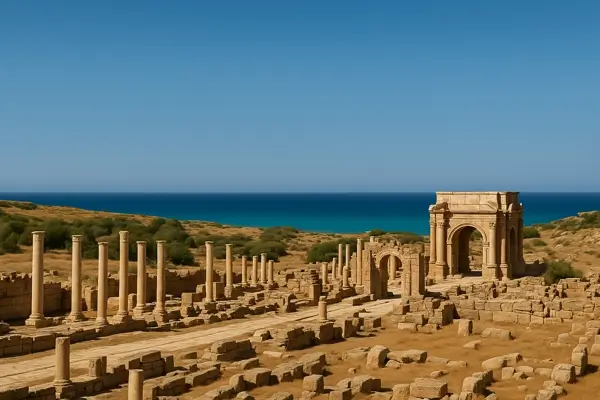
A North African Gem – Libya is a North African country located along the Mediterranean Sea, bordered by Tunisia, Algeria, Niger, Chad, Sudan, and Egypt.
Libya’s Vast Desert Landscape – A large portion of Libya is covered by the Sahara Desert, making it one of the most arid countries in the world, with vast stretches of sand dunes and rocky plateaus.
Rich Ancient History – Libya is home to ancient ruins, such as the Roman city of Sabratha and the Greek city of Cyrene, showcasing its significant historical role in the Mediterranean world.
Oil Reserves – Libya has some of the largest oil reserves in Africa and is a major exporter of crude oil. Oil is a key part of the country's economy, contributing significantly to its wealth.
The Libyan Desert Glass – The Libyan Desert Glass is a rare and mysterious material found in the Sahara Desert, formed by intense heat from a meteorite impact. It is considered one of the most unique substances on Earth.
Tripoli – The Capital – Tripoli is the capital and largest city of Libya. It is a historic coastal city that has served as a major port and cultural center for centuries.
The Berber Influence – Libya has a rich Berber heritage, with many people in the country being of Berber descent, and the Tamazight language still being spoken in some areas.
Libya’s Political History – Libya was ruled by Muammar Gaddafi from 1969 until his overthrow in 2011. His regime was marked by significant political and social changes, as well as international controversy.
The Acacus Mountains – The Acacus Mountains in southwestern Libya are known for their prehistoric rock art that dates back thousands of years, offering a glimpse into ancient cultures and civilizations.
The Libyan Coastline – Libya has a stunning Mediterranean coastline, with long stretches of beaches and ancient port cities, though tourism has been limited in recent years due to political instability.
